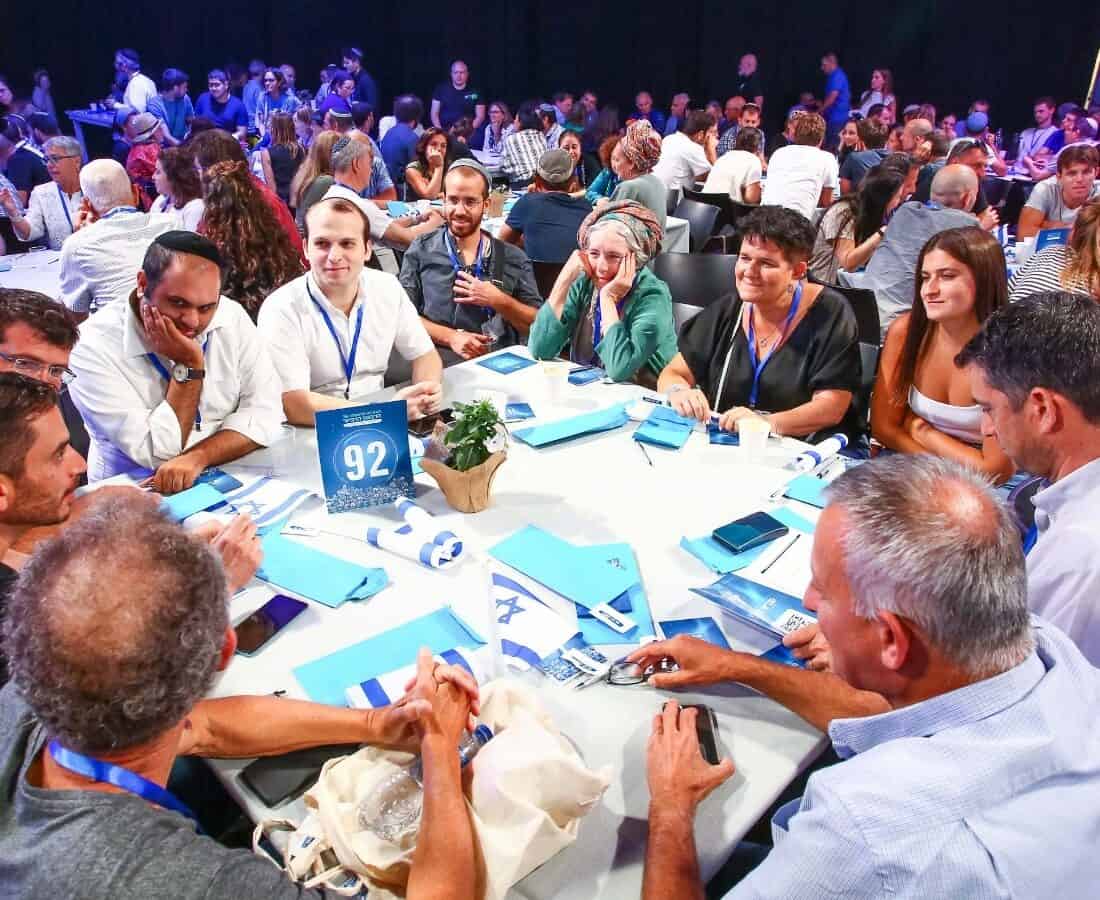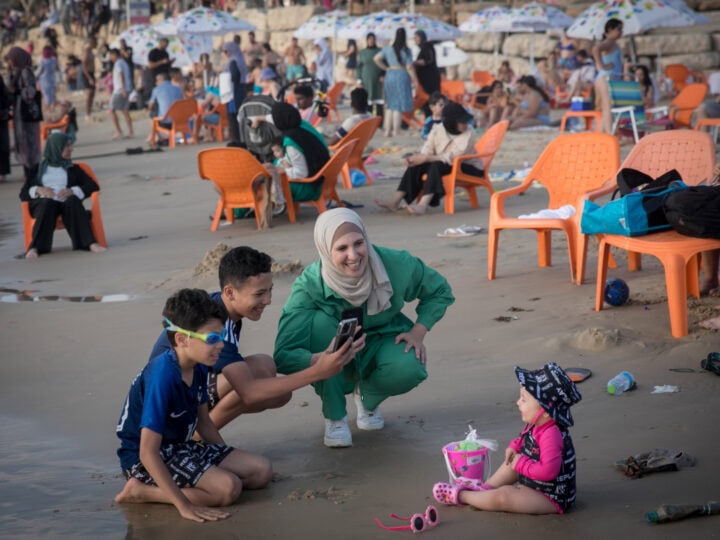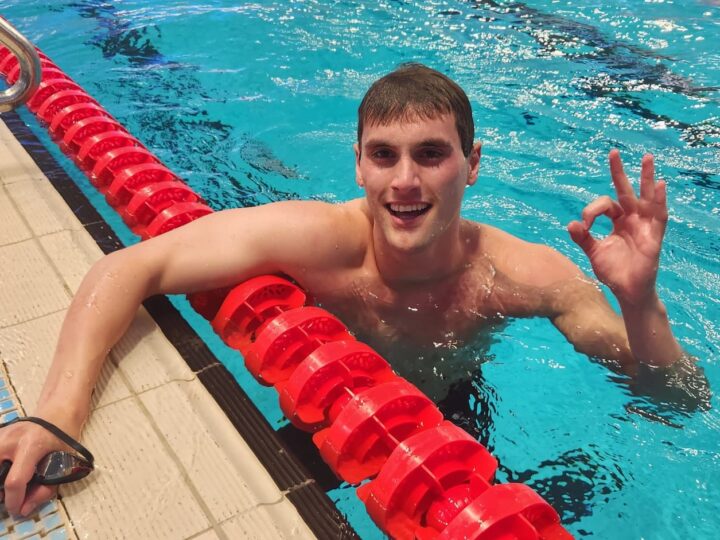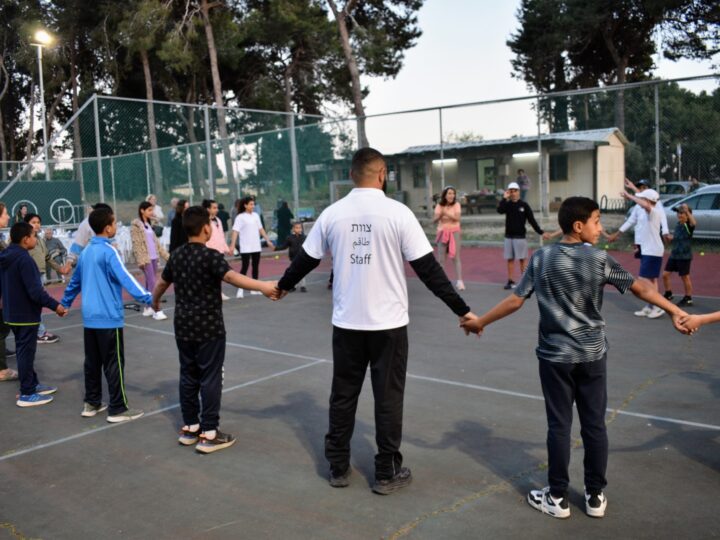Israel is going through a political upheaval that is quite literally splitting the country from within. What one side sees as a necessary and legitimate judiciary reform, the other views as the demise of Israeli democracy and good enough reason to pack up and leave.
And with a conflict so big, a subject so important and a divide so wide, flames are running high – tearing apart families, friendships, government institutions and even the military. People on opposing sides seem unable to talk to one another, let alone imagine their future together.
But this shared future is exactly what one grassroots organization has in mind.
The Fourth Quarter is looking to ensure that Israel, now in its 75th year, will be able to thrive in its fourth quarter. And in a country whose politics run along sectorial “bases,” it is trying to create what it calls the new Israeli base that emphasizes moderation and wide-ranging agreement on the country’s goals.
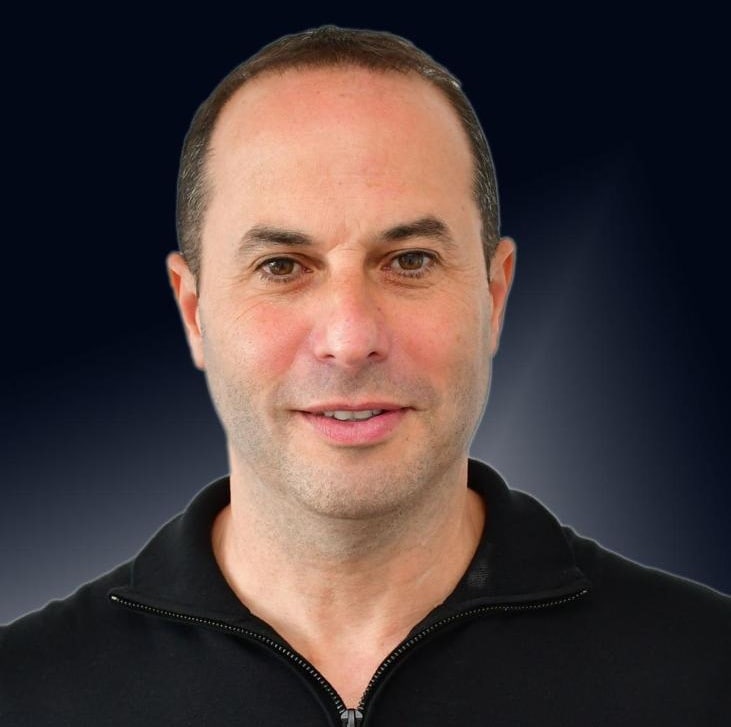
“The first generation established the country. The second generation strengthened it. The third generation scaled it up. And our fourth generation needs to ensure that Israel will celebrate its 100th anniversary looking forward to another 100 years,” Yoav Heller, the organization’s chairperson, tells ISRAEL21c.
“The idea is to reduce the emotional polarization, so that we can dream of a shared future for the State of Israel.”
Emotional polarization
“We’ve identified something interesting,” he explains. “In Israel, ideological polarization hasn’t grown dramatically in the last 30 years, but emotional polarization has greatly increased.
“This has created a situation where extremists dictate the agenda, while the center collapsed, both from the moderate left and the moderate right. We realized that this is not going to work, and that our political system, like all Western democracies, is in great crisis.
“Therefore, we need to fundamentally change the way politics is being done here, from sum-zero politics to trust-building politics, which are comprised of four principles,” Heller says.
“First is the principle of politics of widespread agreement and innovative alliances. We have to progress to politics of moderation, where a politician would say, ‘I’m trying to achieve widespread agreement on critical subjects, without which I won’t proceed.’ Israeli society is in the middle of very extreme change, and we need to be careful about how decisions that affect our lives are made,” he notes.
“Second is the principle of politics of solutions. We’ve seen a mentality that politics is like sports; there are winners and losers. You can’t run a country like that. If you win the elections, it doesn’t mean that the winner takes it all. You need to consider the whole of the country,” says Heller.
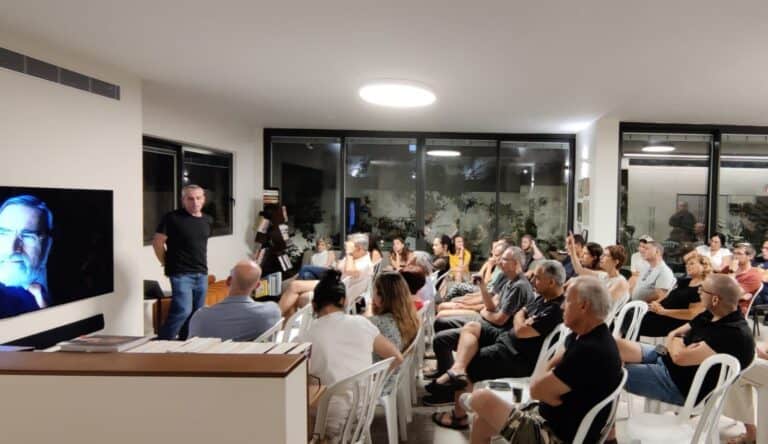
“The third principle is politics of humility. Anyone who says that they’ve got the whole truth and there’s no other truth is extreme, a zealot, and needs to be on the sidelines. Politics of humility recognizes that Israel is a country of contradictions – both Jewish and democratic, based on both tradition and progress, and so on.
“The fourth principle is forward-facing politics. This kind of politics realizes that we have huge, fundamental challenges in the years to come, in terms of security, personal security, the Arab-Israeli conflict, the integration of the ultra-Orthodox and Arab communities in Israeli society, our education system or our relations with diaspora Jewry, which are in trouble. We expect politicians to have serious, long-term plans and not populist politics.”
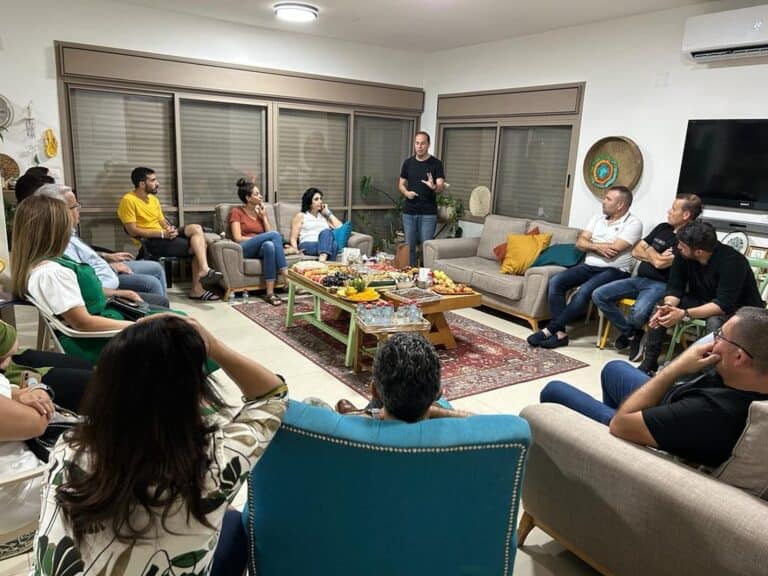
The Fourth Quarter is founded on the belief that if the public demands these principles, Israel can reduce emotional polarization and create an updated shared story and a new social contract.
“Right now, we can’t create a new story because people are so emotionally polarized,” Heller argues.
Grassroots action
A history lecturer with years of experience in the public sector, Heller founded The Fourth Quarter with three people from the public, business and media sectors around a year and a half ago, prior to the current political upheaval.
“We wanted to create a grassroots organization that says to citizens, ‘We are part of the problem. Don’t only blame the politicians; we incentivize them for politics of polarization and submission.’ What needs to be done is to create a huge Israeli base of moderates from both sides that come together,” Heller says.
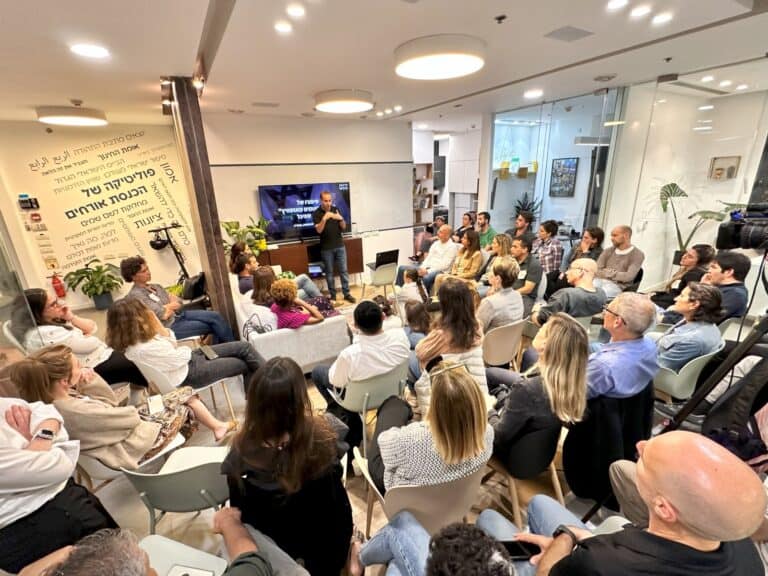
The movement has grown from four to 46,000 diverse participants organized in 40 groups across the country, where they meet face-to-face for parlor talks and seminars in people’s homes.
“We’ve already had almost 600 such parlor meetings. I personally have already done 210,” Heller notes. “By the summer of 2025, we want to reach a million Israelis who will support the movement and force change on the political system.”
Shaked Ohana, a psychology student with a background in social entrepreneurship, was invited by Heller to one of the group’s first seminars a year and a half ago and was deeply impressed.
“Aside from the lectures, there were also a lot of dialogue circles, and each such circle brought together people with completely different identities who still shared a hope of what this kind of space can contribute to Israeli society,” she reflects.
In one discussion about an Israeli military operation, Ohana found herself confronted with a fellow participant with a viewpoint far removed from her own.
“My personal experience was very emotional and so was hers, and we didn’t manage to agree on the way in which we viewed the situation. Our narratives were so different, and we see things so differently, yet we’re both participants in The Fourth Quarter,” she says.
“This experience of being in a dispute and still seeing the hope that the Quarter wants to bring to Israeli society was very strong for me,” she notes. “The Quarter’s vision isn’t detached from reality and our disputes, but instead stems from it.”
Planning a better future
Although the debate over the judicial reform increased the organization’s membership, it created tensions within the movement between people who are more liberal and people who are more conservative. Some members join the protests and others don’t.
“But it also meant that lots of Israelis looking for a home in which to build our future began joining,” says Heller. “In the middle of all this, we also need to build the infrastructure for the day after tomorrow.”
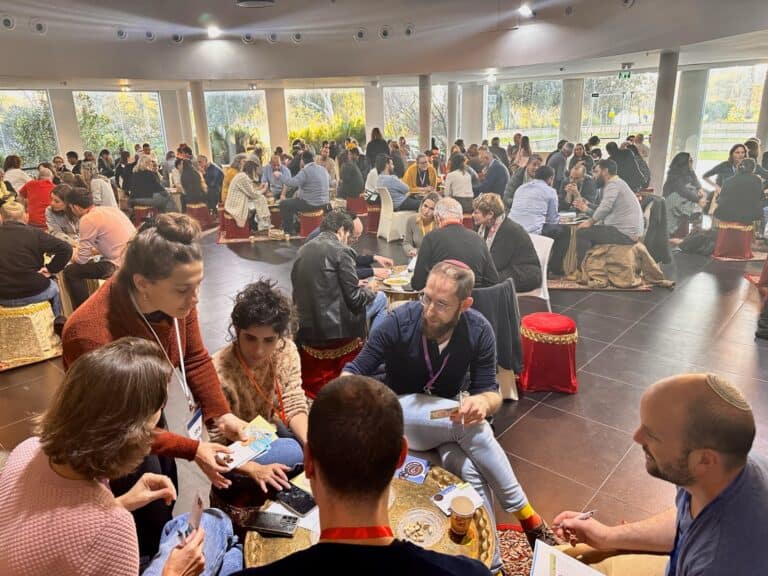
Nitza Farkash, a mother of five and veteran activist of cross-sector dialogue from the settlement of Eli, found that home in The Fourth Quarter when the upheaval began.
“The Fourth Quarter differs from other dialogue circles in that there’s also a practical ambition to influence Israeli politics and effect real change – not only speak with one another and be nice to one another, but really to think together what needs to be done after this ends,” she tells ISRAEL21c.
“At some point, this storm will pass, but we’ll be left with a split and very deep pain, and we need to overcome that,” she says. “This is also about being part of creating new thinking regarding politics in Israel. There’s a chance to create real change.”
Farkash finds every meeting inspiring.
“Each time, I meet Israelis from all backgrounds and ideologies who care about Israel and they’re not willing to give up,” she says. “They might be desperate, but they’re not willing to give up and they want to find a solution. Just taking part in this keeps me sane.”
The new Israeli base
Heller’s target audience is moderate Israelis from across the religious and secular, Jewish and Arab sectors.
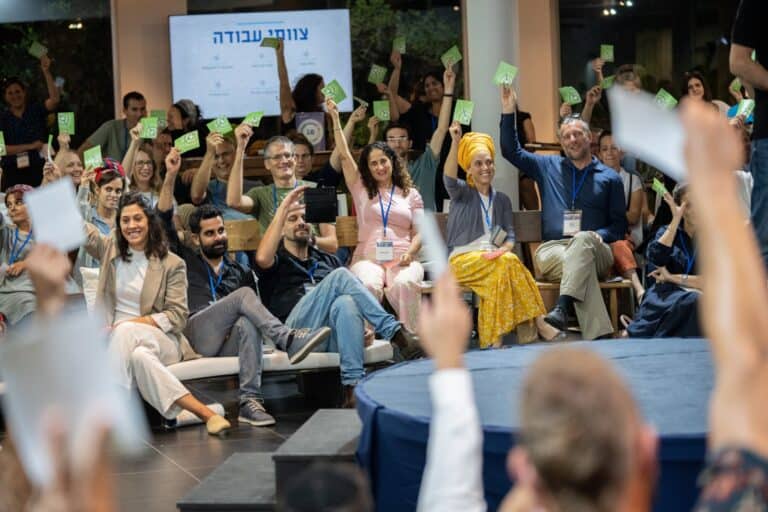
“We’re encountering a challenge when it comes to the Arab community, because we do believe in a Jewish and democratic state – we’re a Zionist organization – so at the moment only four percent of our members are Arab Israelis,” Heller admits.
“And yet, we also greatly believe in recognizing the pain of the Arab community in Israel and their need for equal rights. We want, for example, to suggest a national project that will see most of Israel learning to speak spoken Arabic within 15 years, without giving up on the principle that we’re a Jewish and democratic state. We don’t see a contradiction in that.”
Funding for The Fourth Quarter comes from foundations and individual donors, most in Israel and some in the United States.
“We began the organization with two donors, and now we have 20. We’re growing and the budget is growing, and we’re making sure that our portfolio is diverse and that it includes people who aren’t too intimately connected with politics,” Heller says.
“We’re also growing on social media. Within four or five months, we’ve jumped from an average exposure of 60,000 people per month to 540,000 people in the last month.
Searching for hope
“We want to reach crazy amounts of Israelis who meet one another socially, either in parlor meetings or dialogue meetings,” says Heller.
The Fourth Quarter is also increasing efforts to reduce emotional polarization.
One current project, in collaboration with commercial chains, has different Israelis uploading photos getting coffee with one another.
“We want to demolish the echo chambers,” Heller says.
The organization is also working on an educational plan and on a technological plan to be released at a conference this winter.
“People are searching for hope. I think that’s what it’s all about,” Heller says.




